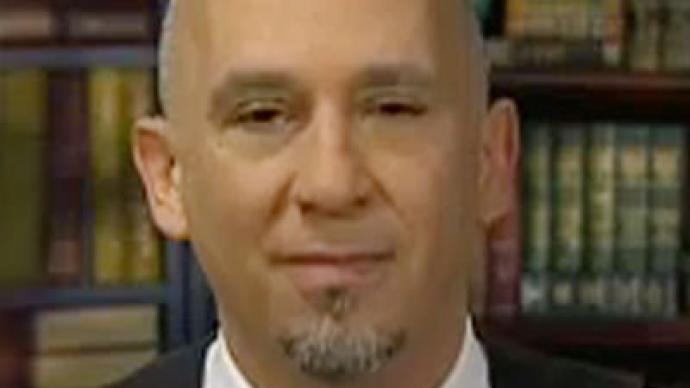Waiter who refused to serve rude customer becomes Internet hero

A Texas waiter who refused to serve a customer has been applauded for his behavior. After waiter Michael Garcia noticed a family making fun of a child who has Down syndrome, he was so personally offended that he drove the customers to leave.
Garcia, a waiter at Laurenzo’s restaurant in Houston, has been regularly serving a family that includes a 5-year-old with Down syndrome. The family has consistently visited the restaurant ever since it opened, leading to a close relationship between the waiter and the special needs child, Milo.When another family visited the restaurant and began to ridicule the child with Down syndrome, Garcia was personally affected. The family moved to a table further away from the 5-year-old, while making rude comments about the kid and indicating that “special needs children need to be somewhere else.”“Milo wasn’t being bad, he was just talking and making little noises,” Garcia told Fox News.“My personal feelings took over because that’s ignorance in my opinion and I told him, ‘Sir, I won’t be able to serve you,” he said.When the restaurant’s management found out about the conflict, they expressed disapproval from a managerial standpoint, but agreed with Garcia’s behavior on a personal level. But after the family left the restaurant, locals caught wind of the story and began to praise Garcia for making a stand on behalf of special needs children. The restaurant’s Facebook page has since been flooded with praise for Laurenzo’s and its waiters.“Thank you so much for speaking up when most just turn away,” wrote Facebook user Tisha Baker.“I wish I lived in Texas so I could eat at your restaurant. I would loved to have met Mr. Garcia and thank him for his compassion and courage,” posted Sue Pusztai.“Thank you Michael Garcia for being an honorable man and to Laurenzo’s, an establishment of honor,” wrote Cheri Mahan Solis on the restaurant’s Facebook page. “Our society seems to be growing more rude and aggressive by the day, less tolerant of anybody with any difference.”Even the mother of 5-year-old Milo took to the Internet to express her gratitude towards Garcia, urging restaurant visitors to tip the waiters heavily. Garcia had not told the family about the incident, but they caught news of it when the story was posted online.“We can’t lose track of what this is about,” Garcia said in response to the attention his story has received. “It’s about Milo, it is about educating ourselves and when people are different, why should you treat them any different?”The waiter said fear of the unknown sometimes prompts people to act in a rude manner around people with special needs, but that people like Milo are a “gift from God”.Discrimination against the mentally ill still remains a widespread problem. A research team at John Moores University found last year that in developed countries, 24 percent of mentally ill adults had been a victim of some form of violence in the preceding year.While mentally challenged children are not often victims of violence, they are frequently discriminated against in other ways. In September, a 16-year-old boy with Down syndrome was barred from flying first class across the US on an American Airlines flight. The airlines’ spokesperson claimed they feared he would be disruptive, but the boy’s parents had spent a significant sum of money to purchase their child the ticket. The family also claims their son usually sleeps through flights and that the discrimination against him was unjust and unfounded.Approximately 400,000 Americans have Down syndrome. Even though the number of children born with the syndrome has been on the decline, discrimination against people with the disease continues to be a problem in a society where 38 percent of Americans know someone that suffers from the condition.














